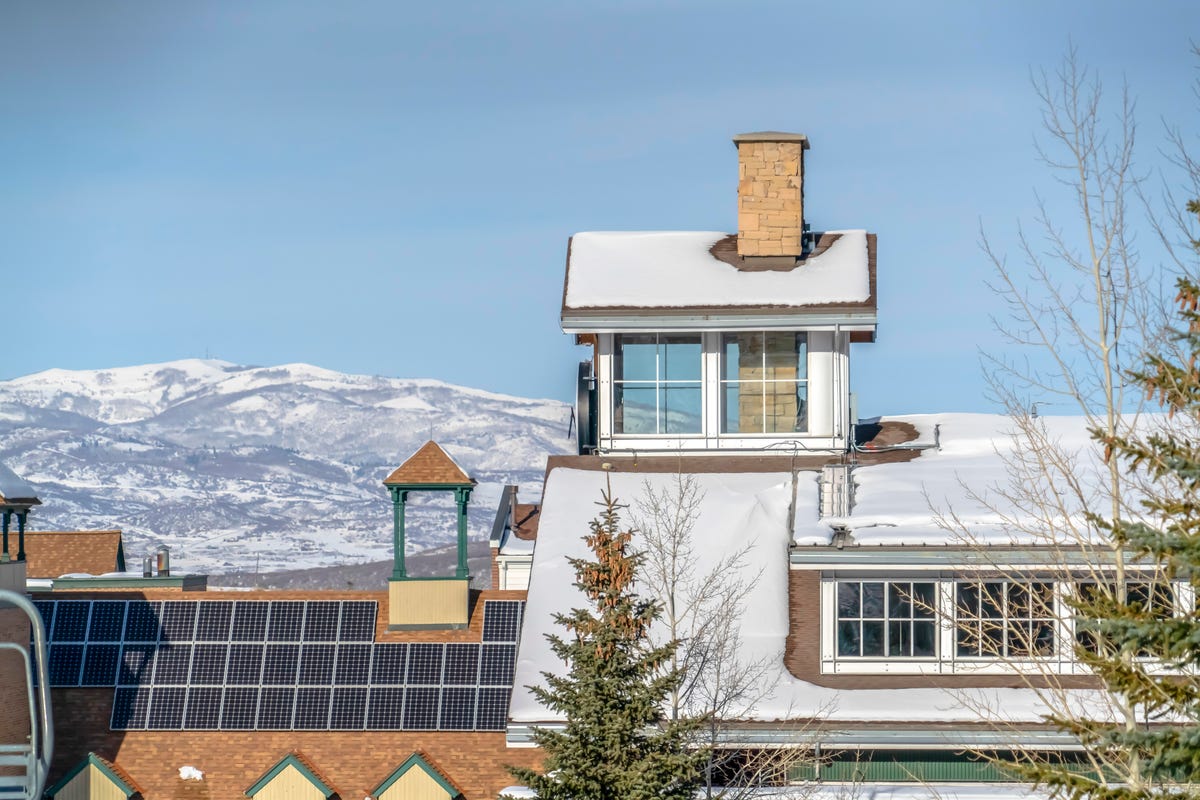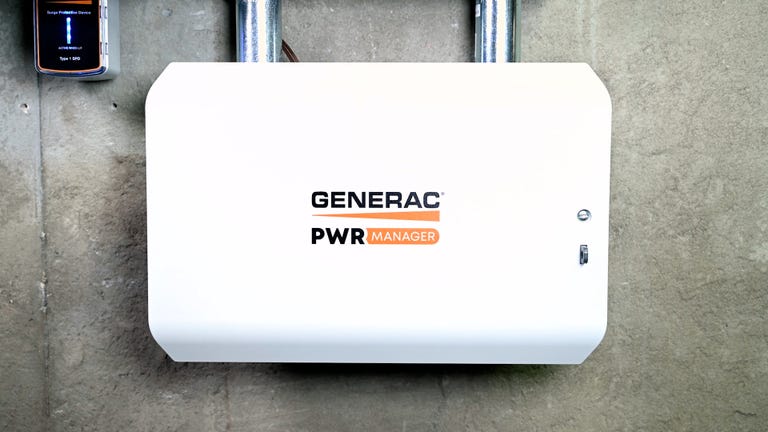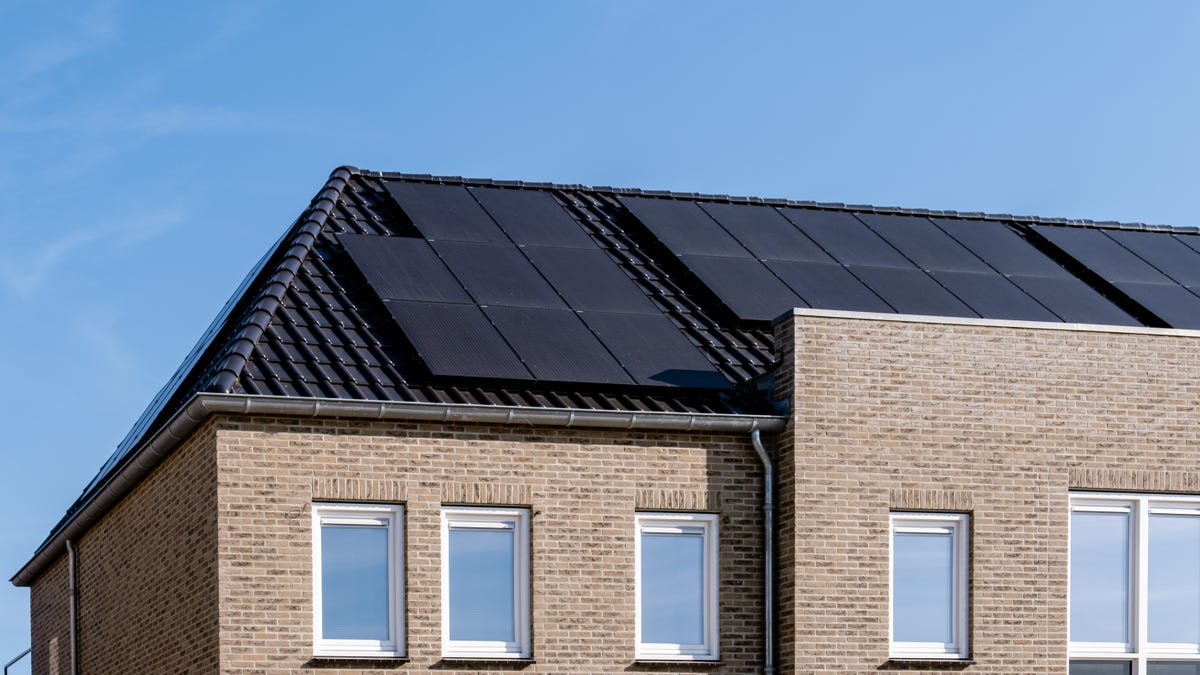
Solar panels on a roof in Utah, one of the 13 states where Lumio operates.
Thinking about choosing Lumio to install your solar panels? The most important thing to know is that it’s one of several major solar companies to face significant financial difficulty recently.
In September, Lumio filed for Chapter 11 bankruptcy. The process is expected to take two months and the company will continue operating normally in the interim. When the process is completed, this may result in significant changes to offerings and services.
Solar panels on your roof can reduce your energy bills and, paired with a battery, can keep your power on during an outage. If you’re thinking of adding solar panels to your home, the most important decision you have to make is choosing the right solar installer.
What sets solar companies apart? Most people will be able to claim the federal solar tax credit and local incentives regardless of their installer. Other factors — including customer service, equipment offerings, warranties, additional services like roofing, your personal interactions with the company and what happens if it goes out of business — will vary. In Lumio’s case, it shouldn’t affect the company’s ongoing operations in the interim, but it may result in changes later on after restructuring. You’ll want to understand these variables and more before choosing an installer.
Founded in 2021, Lumio is an installer operating in 16 states. The company emphasizes customer care and a personalized approach that can include extra services like putting down a new roof before covering it in panels meant to stay there for a quarter century or longer. One of its goals is also to decentralize power with installers who are more familiar with your city and utility company.
In September 2024, we contacted Lumio’s CEO and press representative to schedule an interview, but they declined to speak with CNET, so we couldn’t gather all the information necessary to score it against other companies. Here’s what we found from our own research.
What do I get from Lumio?
Lumio offers residential solar installations for purchase and lease as well as power purchase agreements, according to its website. This includes solar system installation, solar batteries, EV chargers, roofing repairs and upgrades, and tree removal. It controls the entire process, from permitting to operation, and negotiates with partners for lower costs. It also works with customers to secure one of multiple financing options.
Lumio also offers an optional reroofing service for homeowners with older roofs that may need to be redone during the lifespan of a solar system as well as tree removal. However, Lumio’s services can vary by state, so it’s wise to get in contact with a local representative to get accurate information and quotes.
What solar equipment does Lumio install?
Lumio only installs all-black, 60-cell, 5-foot by 3-foot panels. The panels look sleeker than traditional blue silicon crystal panels, but there is some debate in the industry about which technology is more efficient. The monocrystalline structure of black panels has been found to produce electricity more efficiently than the polycrystalline structure of blue cells, but black panels also absorb more heat, which can reduce efficiency. According to Lumio, black panels also occupy less space and have a longer lifespan.
Lumio says it sources panels from companies that “operate ethically” without offering any specific names.
In February, Lumio announced a partnership with Enphase to offer its EV chargers, batteries, and microinverters in residential solar installations. As of September 2024, the status of this partnership is unclear.
What warranties does Lumio offer?
Lumio relies on manufacturers’ warranties of 25 years for solar panels and inverters and a 10-year warranty for batteries, which are essentially the industry standard. In most cases, this means that panels are guaranteed to produce at least 80% of their original production levels for a quarter century, though leading warranties peg production at 92% after that time.

Watch this: How to Approach Home Batteries if the New 30% Tax Credit Has Your Attention
Lumio also guarantees its workmanship on the installation for 10 years, meaning if your roof leaks from where the panels were installed at any point in the first decade, the company should be compelled to fix that.
Does Lumio offer monitoring services?
The Lumio HX app used to be available on the Apple and Google app stores, but both have been removed as of September 2024. When it was last visible, the Android version of the app did not have any reviews, while the Apple app had a five-star rating based on just two reviews. When it was functional, the app primarily monitored progress through the permitting and installation process but it was also meant to monitor the energy production of the system once installed. It’s unclear if Lumio plans to replace the apps with a new service or if it has discontinued monitoring entirely.
Does Lumio use subcontractors?
Lumio uses all in-house, certified employee installers. Technicians should show up in Lumio-branded trucks and uniforms to finish a full installation in a single eight-hour workday in most cases.
We consider the use of W-2 employees a bonus because it reduces the potential for headaches in coordinating between your solar company and subcontractors.
How much do Lumio panels cost?
Like most companies, Lumio does not offer details about pricing or if it offers a price match.
What we can say is that data from consulting firm Wood Mackenzie for the second half of 2023 put the average price-per-watt of a solar installation in the US at $3.30 per watt, which is roughly in the middle of other reputable estimates.
This number can vary quite a bit, depending on the local market and a homeowner’s specific needs. The black panels that Lumio installs may also cost a bit more than blue panels, although that difference becomes more negligible all the time.
What financing options does Lumio offer?
Lumio works with a number of financing options, including home equity lines of credit or loans, conventional solar loans, solar leases, mortgages, refinances, cash, secured and unsecured personal loans, and power purchase agreements.
The company may not offer all these options itself but can help point customers in the right direction to secure the financing they need.
Does Lumio operate in my state? How do I order?
Lumio operates in 16 states, with two more coming soon, though this may be delayed due to Lumio’s recent bankruptcy.
States where Lumio operates
Lumio used to offer a 3D modeling tool on its website that would ask you a few basic questions and pull up a satellite photo of your home. The app would provide a model and price estimate for a solar system. It’s helpful to begin to establish a baseline for what to expect. This service no longer seems to be available.
To get a quote, you must now enter your full name, email, phone number and ZIP code, then wait for a Lumio representative to contact you. To Lumio’s credit, information for New Jersey resulted in an outreach call, email and text the same day from a company representative to walk me through the process.
The process starts with a brief phone call or face-to-face conversation with a solar consultant to review a quote, energy production estimate and generate a customized design. Once the plan is finalized and a contract is signed, the next step is to complete the financing process, if applicable. Once this is approved, the company moves on to permitting the system with local governments, homeowners associations and net metering agreement is signed and submitted, which Lumio will handle on its own.
Once every office is satisfied and the installation is fully authorized, the company will reach out to schedule a date to actually put panels on your roof. In most cases, installation is done in a single eight-hour workday. It can be turned on after an inspection, a utility review interconnection application is signed and submitted, and permission to operate is granted from the local utility or other authorities, which can take up to four weeks.
Lumio reviews: What are customers saying?
Lumio has an A-plus rating and is accredited with the Better Business Bureau, with a score of 3.06 out of a possible five stars. We don’t place much weight on online reviews, but it’s worth noting that the company takes its online reputation seriously and has a decent track record of addressing issues. Lumio has responded to most reviews on the Better Business Bureau’s website.
Five-star Lumio reviews
“The whole process was seamless, definitely saving money and the company representatives and customer service were great!” — Deborah Z, Aug. 31, 2024
One-star Lumio reviews
“Dont even want to give the one star. This company is the absolute WORST. They promise to warranty your roof however if you have a roof leak they will refuse to send someone out to see it unless you get on the roof and send them pictures. ” — Jessica F, Aug. 27, 2024

Lumio installs all-black panels, like these.
Is Lumio the best choice?
We’re unable to score Lumio because the company declined on two occasions to make a representative available to answer the questions required for scoring. Keep in mind that CNET does not directly test any of the equipment mentioned in this review and has not gone through the ordering or installation process with any solar companies.
Lumio is also in flux due to its Chapter 11 bankruptcy, so while existing customers may not be impacted, if you’re considering Lumio in the future, you may find significant changes to offerings. We hesitate to recommend a company that is undergoing restructuring as your solar installer.
If you’re still interested, do your due diligence. Be sure to always get multiple quotes from installers working in your local market before signing any agreements. Get at least three to five offers before you decide to work with any single installer, but it couldn’t hurt to speak to even more installation company representatives.
Pros
- Reputation for efficient installation
- Uses employee installers
- The website has a wealth of information
Cons
- Transparency about pricing could be improved
- Basic warranties
- Lumio has filed for Chapter 11 bankruptcy
How we evaluate solar companies
Reviewing solar companies in a hands-on way is difficult. Accounting for all the differences from project to project is impossible. To provide a helpful review, we focused on what we can measure and meaningfully compare among companies.
We focus on three buckets of criteria: equipment, warranties and service.
Within the equipment category, companies receive scores for the panels, inverters and batteries they install. Warranties include guarantees on the panels, workmanship and weatherization against leaks. Companies earn points for service if they offer a price match, a meaningful level of price transparency and a well-rated app for monitoring solar production. They lose points if there are major issues pertaining to customer service (lawsuits, investigations or clear reputations for shoddy service). These issues will always be detailed in the review.
You can read a detailed look at how the scoring breaks down.
We don’t consider the average price of a solar company’s installations in their score. This information is difficult to find and hard to compare across service areas (and even roof-to-roof). Companies are often slow to disclose it, too. We also leave out easily found but not useful information like how many states a company operates in.
Lumio FAQs
What kind of solar panels does Lumio use?
Lumio exclusively installs black, monocrystalline solar panels that have a sleek look. The company says it sources its panels only from ethical manufacturers.
How long has Lumio been in business?
Lumio was formed in 2020 from a merger of four regional solar companies ( Atlantic Key Energy, Lift Energy Solar, Smart Energy Today and DECA) and one home technology company (Unyte Homes).




















+ There are no comments
Add yours